SUMMARY
This is AI generated summarization, which may have errors. For context, always refer to the full article.
Drastic reforms in the Philippine National Police (PNP), like separating the Scene of the Crime Office (SOCO) from the institution, must be done to address alleged extrajudicial killings (EJKs) committed by cops, senior government officials said during a Senate hearing on Thursday, January 28.
Newly-appointed National Police Commission (Napolcom) executive officer Vitaliano Aguirre II, President Rodrigo Duterte’s first justice secretary, said that SOCO and the Internal Affairs Service (IAS) must be detached from the PNP to insulate them from pressure.
Napolcom is an administrative body in charge of recruitment, promotions, deputization, and reforms for the police force. PNP-IAS handles administrative complaints against erring policemen.
“My personal stand is that IAS should be taken out of the PNP because IAS is subject to pressure, political considerations, that’s why we wanted IAS to be an independent agency although attached to Napolcom,” Aguirre said.
Aguirre also proposed to consider the model of some American states where crime scene investigators are independent.
“Dapat ang ating SOCO should be independent of the PNP kasi they are susceptible to pressure, threats, etc. Sabi sa akin, 25 years ago sa Seattle, ganun ang setup na ang SOCO ay naka-attach sa police until they saw that it is subject to pressure,” Aguirre said.
(SOCO should be independent of the PNP because they are susceptible to pressure, threats, etc. I was told that 25 years ago, in Seattle, the setup was such that SOCO was attached to the police until they saw it is subject to pressure.)
Aguirre’s positions are a far cry from when he was justice secretary at the peak of the drug war, when he said that killed suspects are not part of humanity. Aguirre also said at the time that there was no immediate need to create an independent body to investigate EJKs.
Justice Secretary Menardo Guevarra initiated the creation of two bodies (one for the drug war, another for political killings) when he was appointed to the Department of Justice (DOJ), although neither has produced concrete results.
The proposals came during a hearing of the Senate committee on justice and human rights, looking into legislative remedies to address the spate of killings, including those committed by policemen.
Why do erring policemen continue to serve?
Senator Richard Gordon mentioned that Police Senior Master Sergeant Jonel Montales Nuezca – the off-duty cop whose close-range shooting of a mother and son was caught on video in December – had previously faced administrative complaints, and thus should have been fired a long time ago.
Before the sensational murder in Paniqui, Tarlac in December, Nuezca had faced 6 administrative complaints, the latest two in 2019 for grave misconduct over a case of homicide.
In 2014, Nuezca was suspended for 31 days for refusing to take a drug test and leaving the testing area without permission from Napolcom inspectors.
Senator Ronald “Bato” dela Rosa said the offense should have gotten Nuezca automatically fired.
Police chief General Debold Sinas explained that back in 2014, evading a drug test was only equivalent to a less grave neglect of duty, sanctioned only by suspension.
But Sinas said this was changed by Dela Rosa when the latter was PNP chief.
“Binago niyo po sir noong kayo na [ang PNP chief] noong 2016, binigatan po natin ang parusa, ginawa na po nating grave misconduct na, for dismissal. Eh ito 2014 pa po ito nangyari, hindi pa po kayo nito,” Sinas told Dela Rosa.
(You changed this when you were PNP chief in 2016, we made it grave misconduct penalized by dismissal. But Nuezca’s case happened in 2014, you weren’t PNP chief then.)
Dela Rosa said cops who evade drug tests are likely users themselves.
“Debold, I would like to advise you, look at cops who run away from drug tests, because they’re really positive, that’s sure to be a user if they evade it, and they should be dismissed right away,” Dela Rosa said in Filipino.
Aguirre pointed out that there is a law that allows policemen who are facing complaints to be allowed to serve, and even be promoted.
Aguirre was talking about Republic Act 9708, Section 2, which says that “if the case remains unresolved after two (2) years from the aforementioned determination of probable cause, he or she shall be considered for promotion.”
“In the event he or she is held guilty of the crime by final judgment, said promotion shall be recalled without prejudice to the imposition of the appropriate penalties under applicable laws, rules and regulations,” the law reads.
“Sige po, aamyendahan natin ‘yang sinasabi niyo, dahil talagang habang nakikita ng mga namatayan, magagalit ‘yan. Trust is better than temporary penalty of recalcitrant policemen, dapat maintindihan ang philosophy ng mga pulis,” Gordon told Aguirre.
(Ok we will amend that. Because for as long as those whose relatives got killed see that, they will really be angry. Trust is better than temporary penalty of recalcitrant policemen, policemen should understand that philosophy.)
Cold cases
Another factor in the decline of trust in the justice system is the long delays in solving cases, whether EJK or otherwise. The delays further fuel the culture of impunity.
Sinas acknowledged that many cases brought to the police turn cold because of lack of evidence or lack of witnesses.
Senator Imee Marcos brought up the need for closer coordination between policemen and prosecutors, so that instead of prosecutors castigating cops for a weak case, they help each other strengthen their evidence instead.
Sinas said too much coordination between policemen and prosecutors, however, gives rise to suspicions of collusion.
This is actually a long-standing issue in the justice system. Justice zones – a closer coordination system among agencies – are being pushed as a catch-all fix, seen to bypass bureaucratic blockages in the process.
Aguirre made an example of the Peter Lim drug case, where a first panel of prosecutors junked the complaint because the evidence of the PNP-Criminal Investigation and Detection Group (CIDG) was weak. The DOJ was slammed for that resolution, leading Aguirre to void the 1st panel and create a 2nd one that eventually charged Lim.
Embarrassment over that case caused Aguirre to resign.
“There were only 4 lawyers with the CIDG that time, 3 of them are not even involved in litigation. So only one was coordinating the CIDG with the DOJ. I don’t know if it was because of incompetence or lack of lawyers, but very basic, the CIDG’s complaint didn’t even include Senate transcripts. The transcripts contained a lot of evidence,” said Aguirre in Filipino.
The Peter Lim case raised questions about the role of prosecutors – are they perpetually passive, looking only at the evidence brought to them, or can they be more proactive, looking or asking for more?
What Aguirre failed to mention in the Senate hearing is that as justice secretary at the time, he could have tapped the National Bureau of Investigation (NBI) for a supplemental case buildup, but he didn’t.
Integrated Bar of the Philippines (IBP) national president Domingo “Egon” Cayosa said they now have a program with PNP and NBI called “Justice Bilis (Swift Justice)” where lawyers coordinate with law enforcement to help track down suspects and build up a case for a charge. – Rappler.com
Add a comment
How does this make you feel?
![[OPINION] ‘Some people need killing’](https://www.rappler.com/tachyon/2024/04/tl-some-people-need-killing-04172024.jpg?resize=257%2C257&crop_strategy=attention)


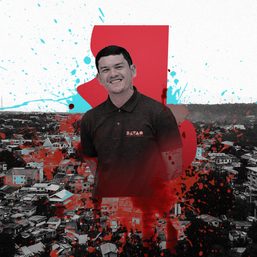
![[EDITORIAL] Hustisya sa Jemboy case: Tinimbang ka ngunit kulang](https://www.rappler.com/tachyon/2024/03/animated-jemboy-baltazar-killing-verdict-carousel.jpg?resize=257%2C257&crop=257px%2C0px%2C720px%2C720px)



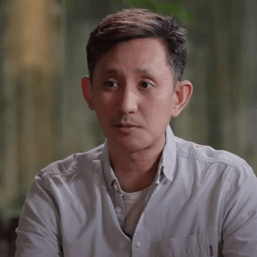
![[WATCH] Dahas Project, the team that continues to count drug war victims](https://www.rappler.com/tachyon/2024/03/dahas-project-2.jpg?resize=257%2C257&crop=404px%2C0px%2C1080px%2C1080px)

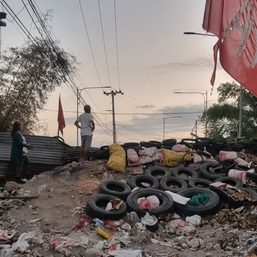
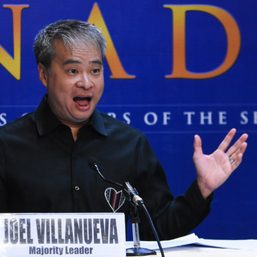
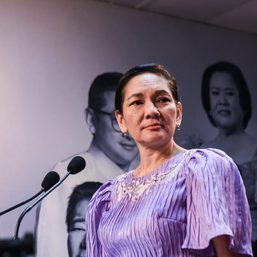
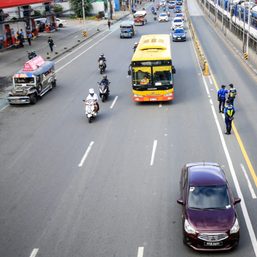
There are no comments yet. Add your comment to start the conversation.